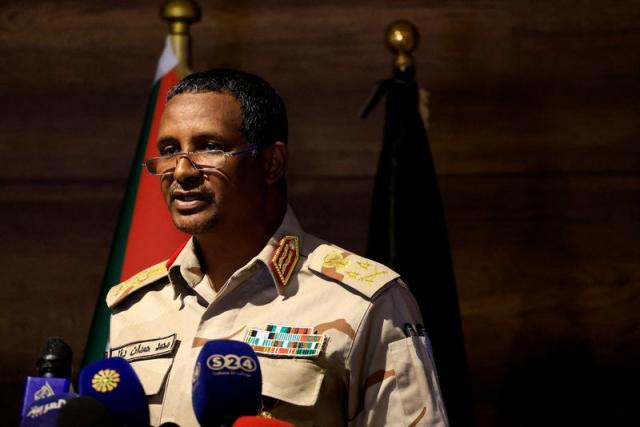
Sudan’s Rapid Support Forces (RSF) commander, Mohamed Hamdan Dagalo, disclosed on Sunday that Sudanese Armed Forces (SAF) withdrew from peace negotiations in Manama last February under pressure from Islamist factions, despite an earlier agreement between the two sides.
The talks in Manama, facilitated by Egypt with support from Saudi Arabia, the US, and the UAE, were not openly discussed by either party at the time, Dagalo revealed in a recorded Eid al-Adha speech.
Dagalo emphasized that the negotiations aimed to secure a peace deal to end the conflict and transition SAF out of power. According to Dagalo, the SAF representative departed from the talks a day before the scheduled discussion on the draft agreement, later apologizing for their absence citing pressure from Islamist factions.
Dagalo also accused Islamist factions of exerting significant control over and influence on SAF decisions. He underscored RSF’s commitment to peace, citing their earnest participation in the Jeddah talks.
SAF has consistently refused negotiations until RSF meets its demand for troop withdrawals and disarmament of RSF fighters. Reports, although unconfirmed, suggested that the Manama draft did not mandate RSF withdrawal from occupied cities.
Addressing recent violence, Dagalo attributed clashes in El Fasher to armed movements aligned with SAF. He blamed SAF, security forces, and Islamic Movement jihadis for killings in Wad al-Noura village, Al-Jazirah State. Dagalo alleged that armed groups aligned with SAF had reneged on their neutrality, fueling ongoing conflict in North Darfur’s El Fasher.
Regarding the Wad al-Noura incident, Dagalo denied RSF involvement, attributing the violence to a military clash involving SAF, security forces, Islamic Movement jihadis, and their supporters.
The government under al-Burhan has accused RSF of killing over 100 civilians.
Dagalo pledged that RSF would defend itself against what he termed as “remnants of the old regime” within the army and intelligence services, vowing to purge their influence from Sudan.
The conflict between the army led by Abdel Fattah al-Burhan, head of Sudan’s ruling Sovereign Council, and RSF has plunged Sudan into turmoil since April 2023.
According to UN estimates, the conflict has claimed at least 13,900 lives and displaced over eight million people. Despite several cease-fire attempts brokered by Saudi Arabia and US mediators, violence continues unabated.
